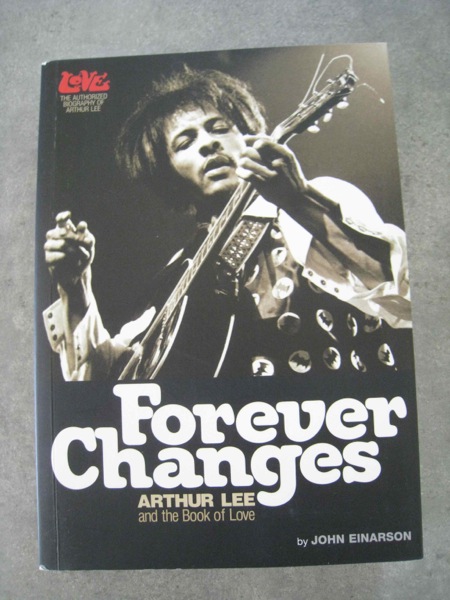John Eniarson Forever Changes: Arthur Lee and the Book of Love

It probably comes as no surprise to learn that there are some things that will never be fully and/or adequately explained, and that many of them fall into areas like the creative impulse which is never going to proceed between Points A to B in a coherent or logical manner.
Take, for instance, the case of Love, the Los Angeles rock band that slots in neatly between The Byrds and The Doors without ever achieving the commercial success of either. A look at the standard Love discography - four albums, a handful of singles and not much else - traces the development of a pretty fair garage folk-rock outfit (Love) into quirkier territory (Da Capo) to a shimmeringly-perfect classic album (Forever Changes) to a fairly unimpressive heavy rock sequel (Four Sail) without any members of the classic Love line-up except main man and resident quirky genius Arthur Lee.
The thirty-five years between Four Sail and Lee's untimely death, of course, represent a litany of false starts, missed opportunities and personal differences, and the latter part of John Einarson's Forever Changes: Arthur Lee and the Book of Love runs through the various misadventures that followed in the wake of the Elektra years, aided to a great degree by access to Lee's own manuscript of his life story but, as with everything else concerning Lee and Forever Changes, ultimately it all comes down to the classic third album that remains, in Hughesy's pantheon, the greatest achievement in the history of rock.
That's a big wrap, and one that has remained firmly in place since I first heard Forever Changes back in the late sixties. Over the intervening years I think I've tracked down and read just about everything that's been written about the album, and now, with the publication of Einarson's tome, it's probably safe to say that the last word has been written. Inevitably, there'll be others, but it's hard to see how anyone's going to add anything new to the picture.
And thorough as this volume is, it still laves the question of what happened in the months between Da Capo and Forever Changes largely unanswered. Einarson brings a couple of new bits I don't recall encountering before, the fact that the orchestral charts were written by David Angel in consultation with Lee before the recording sessions kicked off being the most significant. Until this point I'd assumed they'd followed the standard practice (record the basic tracks and overdub the strings later as an add-on) rather than going in and recording with space left for the orchestral flourishes. Of course, when you know how it was done it makes sense, it's just that you didn't think of it that way from the start.
Seriously, this looks to me to be pretty close to the last word on Lee, Love and Forever Changes. Einarson's done a sterling job, and it's difficult to see how another writer's going to bring anything new to the picnic. Highly recommended, but it still leaves the question of just how they managed the Da Capo> Forever Changes quantum leap largely unanswered, but I guess there are some things we're fated never to know.

